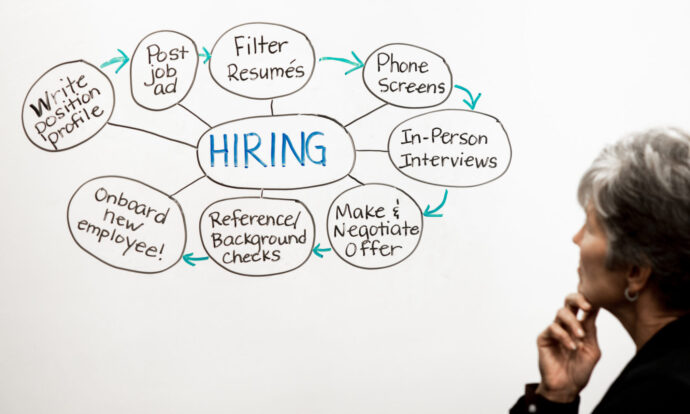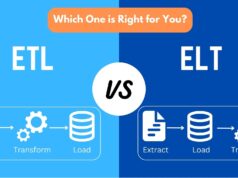A company’s recruitment process is pivotal to its success in the ever-evolving business landscape. The ability to attract, assess, and hire top talent can be the defining factor that sets your organization on a path to growth and excellence.
Businesses that excel in recruitment enjoy a multitude of benefits that have a direct impact on their overall success. It’s already apparent that an effective recruitment process allows you to consistently attract high-caliber candidates with the skills and qualifications needed for the job. This ensures that your team is composed of individuals with the potential to excel in their roles.
An effective recruitment strategy also reduces turnover by ensuring new hires align with company culture and values. It’s an open secret in the business world that high employee turnovers are expensive and reduce productivity and morale in the workplace.
Human capital is quickly becoming a source of significant competitive advantage for companies. Hiring the right people in the proper position is crucial to success, as your team can more effectively meet market demands, respond to challenges, and seize opportunities. So, it’s imperative to develop a robust and effective recruitment strategy.
The first thing you should realize before developing a recruitment process is that recruitment processes are never static. They should ideally always be in development or continuous improvement to meet the changing needs of the organization, the job market, and evolving best practices.
- The job market changes as new roles and industries emerge, and the required skills may change. Your recruitment process must adapt to identify and attract talent with the right skills for these evolving positions.
- Technology plays a significant role in recruitment and is constantly advancing. From applicant tracking systems to video interviews, it’s essential to stay updated with the latest tools and platforms that can improve efficiency and effectiveness.
- Candidate expectations also change. The people applying for positions in your company value a smooth and respectful application process. Regularly improving your process ensures it remains attractive to top talent.
- The field of recruitment is also continually evolving with new techniques and best practices. Staying informed about these changes and incorporating them into your process can lead to better outcomes.
This article will delve into practical tips to optimize your recruitment process, addressing the ever-changing job market, advancing technology, shifting candidate expectations, and the evolving landscape of recruitment best practices. Let’s explore how you can refine and enhance your recruitment methods for lasting success:
Define Clear Job Requirements

The foundation of an effective recruitment process starts with a clear understanding of the role you’re looking to fill. Define the job requirements, including skills, experience, and qualifications. Doing this ensures new hires have what it takes to excel in their roles and contribute directly to the company’s success.
Clear job requirements also provide a solid foundation for onboarding new employees. They can start their roles with a strong understanding of what’s expected of them.
Candidate Assessment
An effective candidate assessment ensures you select the right individuals for your organization. It helps identify candidates with the necessary skills and qualifications that align with your company’s culture and values.
There are different ways to assess candidates, from psychometric test development to behavioral interviews, technical tests, etc. Psychometric testing can provide valuable information about a candidate’s personality and cognitive abilities, while behavioral and technical assessments offer insights into their past experiences and job-specific competencies. Usually, a combination of the three helps hiring teams make more informed decisions about candidate suitability for a particular role and organization.
For businesses that operate in different companies, there may be a need to adapt assessments to the local languages of the applicants. It’s easy to achieve this through AI or professional language translation services.
Leverage Technology
Technology plays a significant and ever-growing role in developing an effective recruitment process. You can use several resources to streamline your recruitment process, reach a wider candidate pool, and make data-driven decisions.
Software like Applicant Tracking Systems (ATS) helps organizations manage job postings, track applications, and efficiently organize candidate data. It streamlines the application process and aids in managing a large volume of applicants.
It’s also becoming common to see companies create and maintain their job portals and career websites, where they can advertise job openings, accept online applications, and provide information about the company culture.
Video conferencing and interview platforms have become essential for remote and global hiring. They allow for efficient initial interviews and provide a sense of candidates’ communication and presentation skills.
AI is being used for resume screening, chatbots for candidate engagement, and even for analyzing video interviews. AI can identify suitable candidates based on predefined criteria and save significant time in the initial screening phase.
Streamlined Interview Process

Streamlining the interview process is a critical element of an effective recruitment strategy, making the overall process more efficient. It reduces the time it takes to move candidates through the various interview stages, which is vital because top candidates can be lost to competitors if the process is too lengthy.
A more efficient process reduces costs associated with interviewing, such as staff time, interview room bookings, and candidate expenses, allowing for allocating resources to other critical aspects of recruitment.
The key to effectively streamlining the interview process is to develop a clear interview plan. This can be achieved by developing a set of relevant questions and evaluation criteria to ensure that each interview serves a specific purpose in assessing a candidate’s fit for the role.
Employee Referral Programs
Employee referral programs should be a significant part of your recruitment strategy as these programs leverage your current employees’ networks and can provide numerous benefits to your organization’s hiring efforts.
Generally, employees refer candidates they believe fit the organization well. The benefit of this is higher-quality candidates who align with the company culture and values. Referred candidates are also typically hired faster because your employees have already vetted them, reducing the time and effort spent on initial screening and sourcing.
To make the most of employee referral programs, it’s crucial to establish clear guidelines, provide incentives or rewards, and communicate the benefits of referrals to your employees. Regularly review and refine the program’s effectiveness to ensure it aligns with your overall recruitment strategy.
Diversity and Inclusion

Prioritize diversity and inclusion in your recruitment process. Actively seek candidates from diverse backgrounds, as diverse teams tend to be more innovative and perform better. Ensure your recruitment strategies are inclusive and free from bias.
Measure and Analyze
By regularly measuring and analyzing your recruitment process, you can identify strengths and weaknesses, make data-driven improvements, and adapt to changing market conditions, ensuring a more effective and efficient recruitment strategy that leads to better hires and long-term success.
Collect data on various aspects of your recruitment process. Measure the time it takes to fill positions, the cost per hire, and other key performance indicators (KPIs), as they can reveal bottlenecks or inefficiencies in your process that need improvement.















